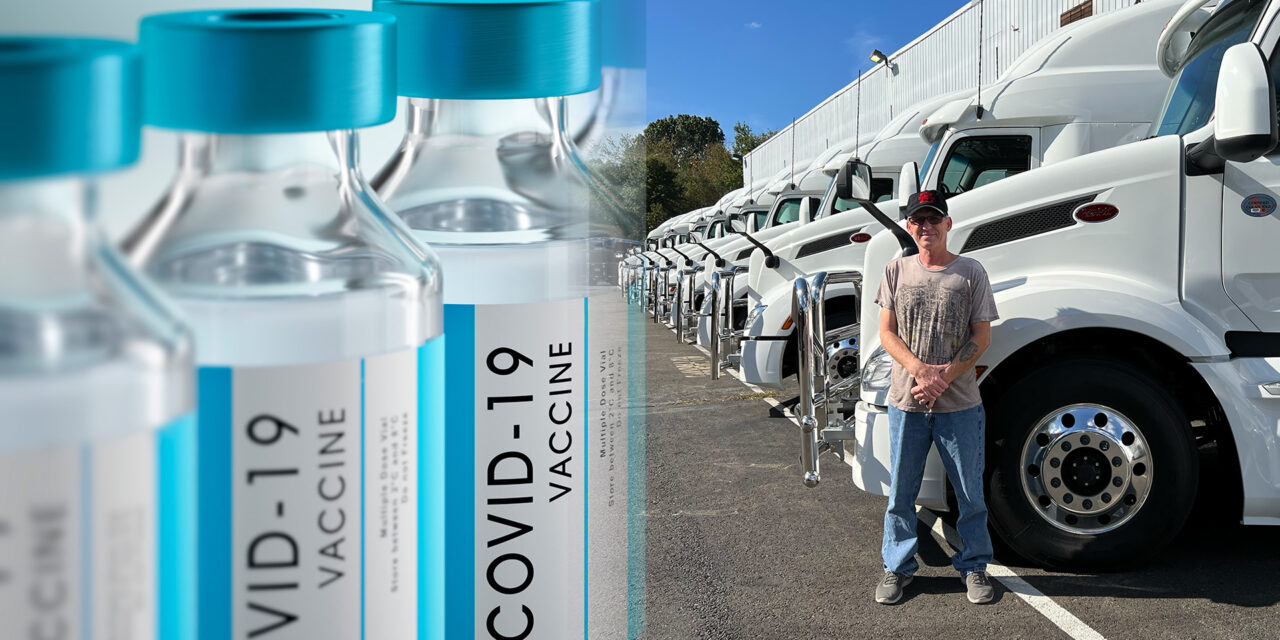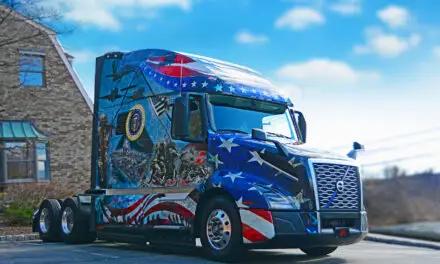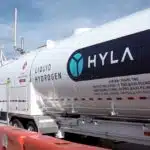The compliance date is January 4th, 2022

Trucking is not exempt from the proposed government immunization mandate.
The Biden administration “pre-published” the basic details of the rule Thursday morning in what is known as a preamble.
Organizations representing the trucking industry had lobbied for the sector to be exempt.
The regulation, dubbed an Emergency Temporary Standard, takes effect on Jan. 4. (ETS). While that date is not specified in the preamble, a White House briefing Wednesday evening, the transcript of which was published Thursday, stated that the effective date will be January 4.
Businesses with 100 or more employees are required to verify that all staff are fully vaccinated or undergo routine COVID testing.
Prior to the publishing of the almost 500-page preamble and the final federal rule, the Department of Labor provided a prepared statement summarizing the vaccination regulation’s major requirements.
– Employers will be forced to ascertain the vaccination status of every employee.
— Employers must be notified if an employee tests positive for COVID-19.
– Employers must ensure that unvaccinated employees are tested on a weekly basis. Employers are not compelled to pay for such testing unless the necessity is covered by another provision of law, such as a collective bargaining agreement.
— Employees who are not completely vaccinated must wear a mask indoors or when sharing a vehicle with a coworker. Employers are also not required to pay for masks.
The absence of any transportation exemption sparked criticism from the Truckload Carriers Association.
“To the dismay of the TCA and our transportation sector partners, trucking was not exempt,” the TCA stated in a statement made following the publishing of the preamble.
“TCA repeatedly urged the Administration to heed our warnings about the mandate’s impact on the already constrained supply chain, but they chose to proceed with a disastrous mandate that will almost certainly result in the trucking industry losing a significant number of drivers,” the organization stated. “These are the drivers on whom the country depends to transport food, fuel, and presents over the impending holiday season, yet our national leadership has determined that these basic requirements must go unmet.”
TCA also noted opposition to the mandate from a variety of organizations and politicians.
“Efforts to challenge the mandate are presently underway – by private sector corporations, nonprofit organizations, and over a dozen state governors, to mention a few,” it stated in its statement. “While we do not yet know if these cases will result in a delay or eventual repeal of the mandate, we are optimistic that they will succeed, and we will do all possible to support these initiatives.”
At least one Wall Street business views the new vaccine requirements as a potential setback for trucking operations, at least in the short term, and especially in the truckload industry.
Cowen & Co. determined that fleets might lose 20% of their drivers, “likely resulting in a large surge in unseated fleets,” the firm claimed in a research note on Tuesday. “Armageddon or Exemption?” read the letter. The second half of that option is now ruled out.

Cowen asked CEO James Reed about the market implications of the vaccine requirements if there is no exception for trucking during USA Truck’s (NASDAQ: USAK) third quarter results call last week.
“Mr. Reed expects freight costs might grow to $8-$10 per mile, a significant increase for carriers, shippers, and consumers,” Cowen observed. “However, the loss of drivers, the expense of unseated tractors, decreased efficiency, and testing costs should outweigh the gain in spot pricing (which accounts for 12-18% of revenue for the majority of large carriers).”
(FreightWaves reported the $8 to $10 mile figure in its earnings call coverage for USA Truck.)
Cowen added that in addition to USA Truck, there could be “significant and material negative impacts” on the carriers covered by the firm, which include Knight-Swift Transportation (NYSE: KNX), Werner Enterprises (NASDAQ: WERN), Schneider National (NYSE: SNDR), Covenant Logistics Group (NASDAQ: CVLG), Landstar System (NASDAQ: LSTR), and Daseke (NASDAQ: DSKE).
At midday Thursday, the stocks of that group of airlines were trading mixed, up or down 1-3 percent.
Prasad Sharma, an attorney at Scopelitis, Garvin, Light, Hanson & Feary who has been closely monitoring the topic, warned of potential migration of vaccine-hesitant drivers from larger to smaller enterprises as a result of the rule’s 100-employee threshold.
“As numerous groups representing all segments of the supply chain have informed the Biden administration, the ETS is likely to result in drivers seeking smaller employers or leaving the industry entirely, ratcheting up or increasing pressure on an already stressed supply chain,” Sharma said in a statement.
One section of the preamble attempts to quantify the cost of complying with the mandate, taking into account a range of considerations such as time off required to obtain vaccinations.
For example, the preamble estimates that the overall cost of truck transportation per business is somewhat less than $7,000, equating to an industry-wide cost of around $18.1 million.
OSHA estimated that the regulation would apply to 2,597 “entities” and 15,684 “establishments” under the NAICS category of truck transportation. According to OSHA, an entity is a for-profit firm, a non-profit organization, or a local governmental unit. Due to the fact that an establishment is a physical location, an organization may have several establishments.
The tally does provide one of the first precise estimates of how many businesses with more than 100 employees will be subject to the obligation.
The prologue makes no mention of specific businesses or whether they would be disproportionately affected by the obligation. It acknowledges that “employer vaccination mandates may result in employee turnover; employees may quit on their own volition, or companies with severe vaccination policies may terminate or place on unpaid leave individuals who are not vaccinated.”
However, the preamble states that there is “contradictory evidence suggesting that firms who impose a vaccine mandate will face an influx of potential employees.”










